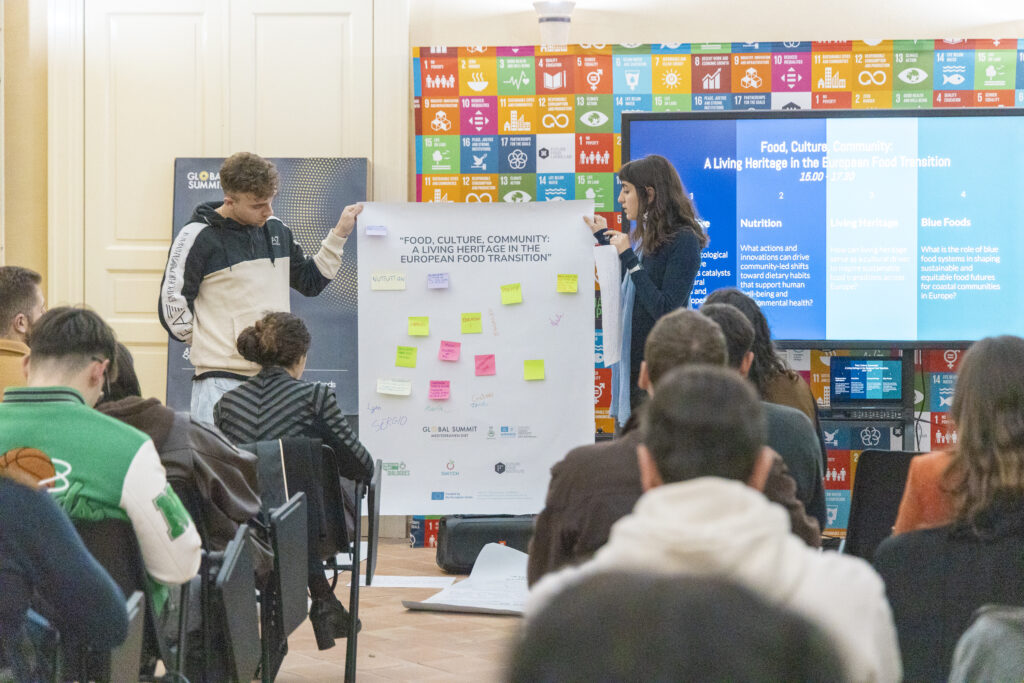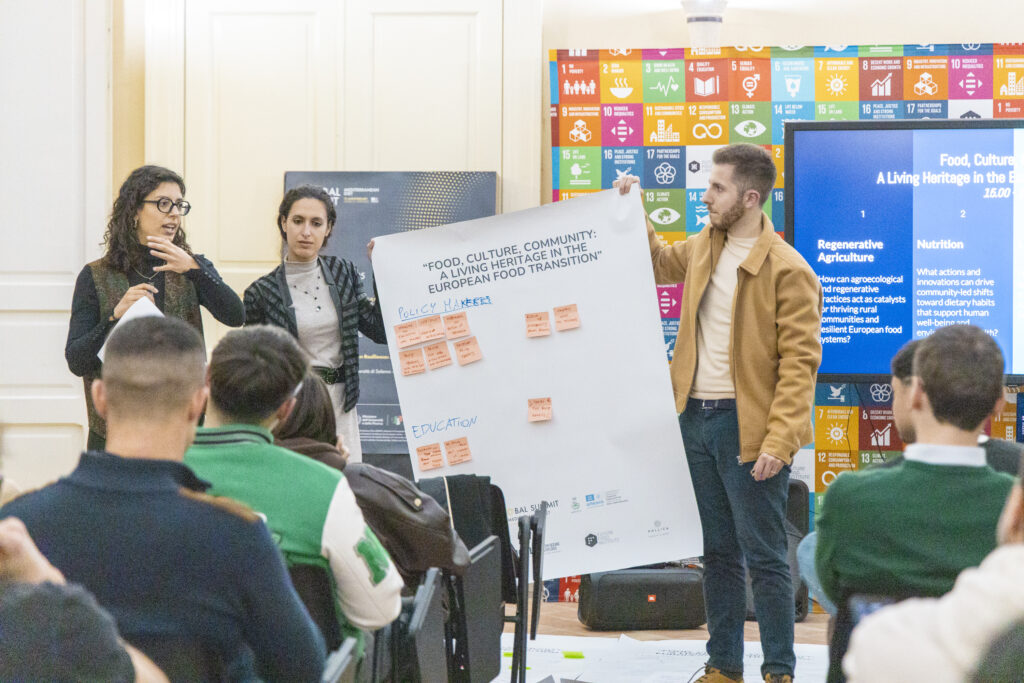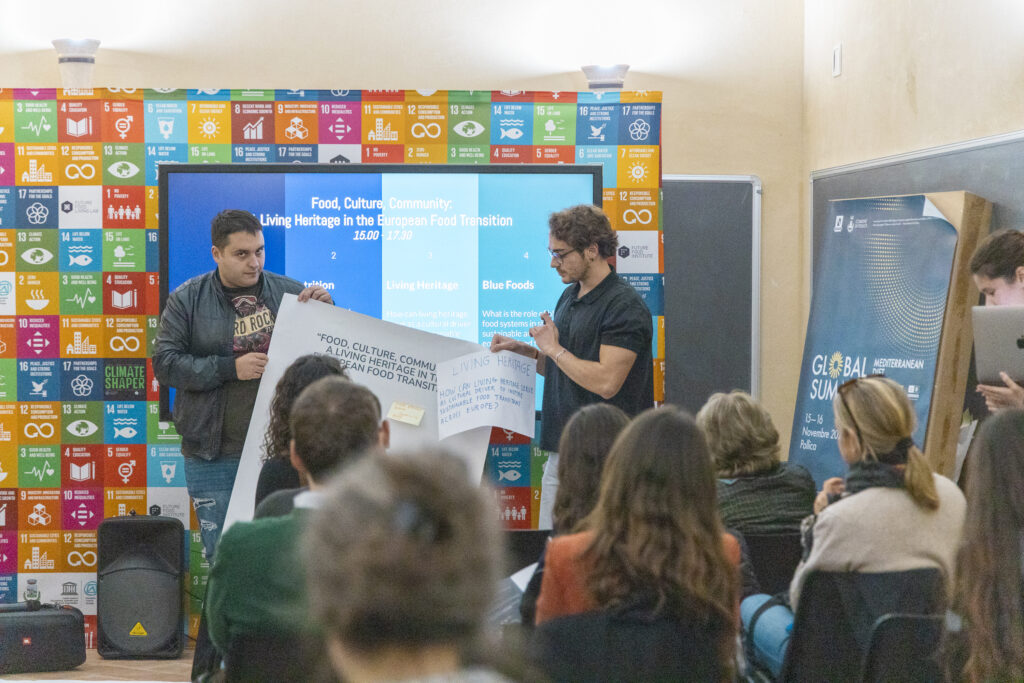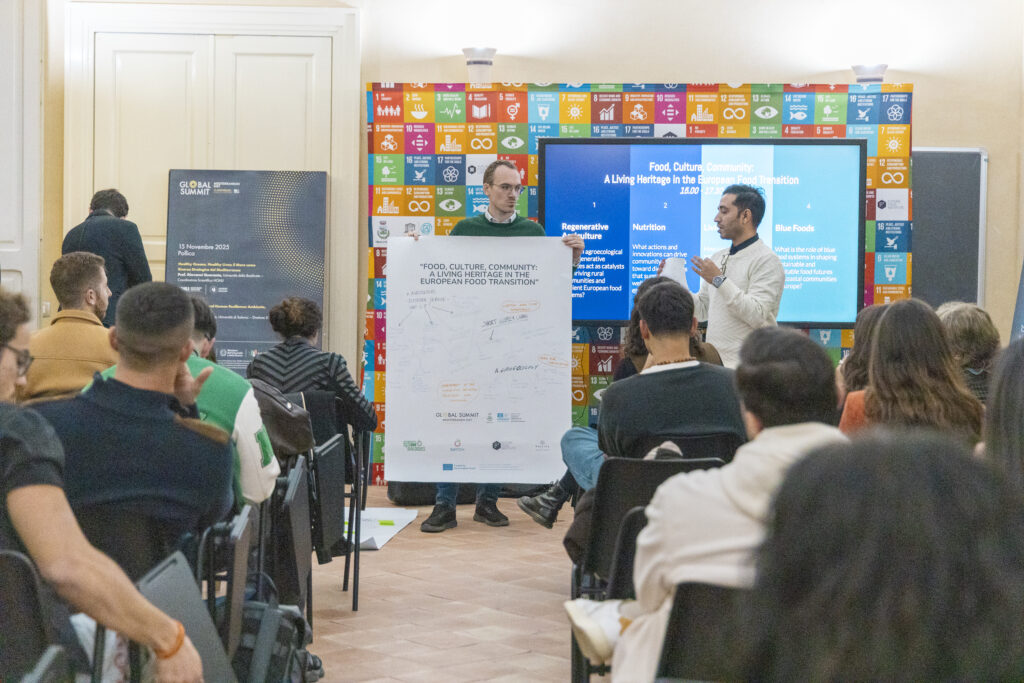15 November 2025, Pollica (Italy) – The SWITCH Project organized a UN Food Systems Dialogue, placing culture and community as central to the sustainable food transition in Europe, in Pollica (Salerno).
The Food Systems Dialogue, titled “Food, Culture, Community: A Living Heritage in the European Food Transition”, was facilitated by the SWITCH Project and the Future Food Institute on November 15, 2025, at the Angelo Vassallo Mediterranean Diet Study Centre in Pollica, Italy. It brought together participants from across Europe with various professional and personal backgrounds, including farmers, students, professors, researchers, local authorities, experts in nutrition, marine sciences and agriculture, as well as the award-winning journalists of the 2025 SWITCH Journalism Award. The Dialogue was preceded by SWITCH sessions (presentations and research), including “Eat Well, Stay Well, Save the Plate: The Mediterranean Diet and the Longevity Algorithm” and “Healthy Oceans, Healthy Lives”, offering a combination of scientific and cultural framing for the following working-group discussions. The Food Systems Dialogue was also part of the 15th Anniversary of UNESCO’s recognition of the Mediterranean Diet.
The Dialogue embraced the key principles of engagement by encouraging inclusivity and recognising the complexity of the topic. The participants faced four key areas for food system transformation: regenerative agriculture, nutrition, living heritage, and blue food systems. Each group worked independently. Nonetheless, they collectively embraced the idea of the importance of the link between food and community, shared experience and identity in the process of the food transformation in Europe.
The discussion led to several key points shared by all participants. First of all, education is a key component in transforming food systems. It is significant to teach about nutrition and food traditions, but also to increase the level of food literacy among households, farmers, and even policymakers. Secondly, the participants highlighted that agroecology and sustainable farming are essential. However, more financial and policy support is required to facilitate widespread actions. Similar actions are needed to support blue food systems and manage marine and freshwater ecosystems. Lastly, traditions and culinary heritage can become a useful resource for reducing food waste and reconnecting communities through seasonal and local food models. Promoting such practices in schools and public places can support the food transition.
While perspectives of different groups varied on whether living heritage and its practices can accelerate or slow down innovation, it was possible to observe a mutual agreement that conducting a dialogue between different viewpoints is crucial to drive resilience, novelty and creativity.
The official UN Food Systems Dialogue Feedback Report has been published and is available via the Food Systems Dialogue platform. It provides a detailed overview of the key points of the Dialogue and reports the role of the SWITCH Project in enabling collaboration between civil society, researchers and experts with different backgrounds to transfer research into practical and encouraging action.




